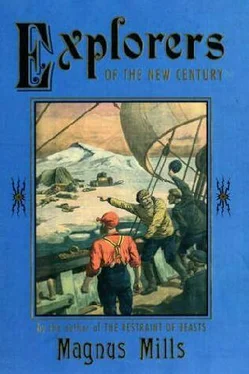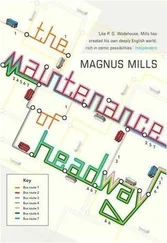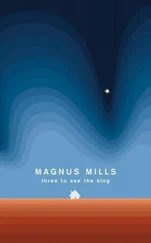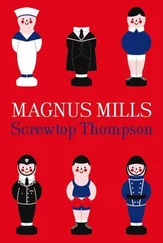“Before we go to bed,” he announced, raising his voice against the ceaseless moan of the wind, “I’ve one or two words to say to you all.”
As was his custom, Scagg was wearing his woolly helmet rolled up towards the crown of his head. During the past few weeks his beard and eyebrows had thickened, and these lent him a certain authority as he addressed his companions in the lamplight.
“This is a dark season,” he continued. “Night and day are indistinguishable. We have endured a lengthy trek through perpetual gloom, and consequently some of us may have forgotten what time of year it is. In my case, only a chance conversation with Medleycott early this morning reminded me of today’s date. Now, if you please, Seddon.”
At a signal from Scagg, Seddon entered the circle carrying a large round biscuit tin. On his head he was sporting a chefs hat fashioned roughly from cardboard, and over his left arm was draped a white napkin. With a flourish he removed the lid from the tin, and revealed an iced cake dotted with a number of tiny candles. Some of the onlookers gasped in surprise.
“Oh, there was really no need,” said Johns.
“Certainly there was,” replied Scagg, clearing his throat before turning to face his leader. “Mr Johns…er…may I call you William in these special circumstances?”
“Of course,” Johns affirmed.
“Well, William, as I say, it was only by chance that I remembered today is your birthday, and so, thanks to Seddon here, I am now able to present you with a celebratory cake, along with our good wishes. If you’ve no objection, we won’t bother lighting the candles. I’m afraid the wind will just blow them straight out again.”
This last comment brought a round of laughter from the assembled men, followed by a robust chorus of ‘Happy Birthday to You’. Then Johns offered his humble thanks and asked for the cake to be divided up so that everyone could have a share.
“No one must go to bed,” he insisted, “until it’s all gone.”
Smiling a rare smile, Scagg produced a knife and performed the honours. Only Medleycott declined a slice.
♦
The process of civilisation is almost complete. We live our lives in safely and prosperity. Famine and disease have been defeated. Trade thrives everywhere. We no longer practise warfare and hence we have no need of a standing army. Neither do we fortify our cities and ports. For decades our navies have kept the peace by sailing along foreign shores and firing cannon-balls harmlessly into the sea. Diplomacy does the rest. There is no doubt that we’ve made the world a far better place to live in. Yet there remains one enduring problem: namely, the question of the mules. Since time immemorial they have been our inescapable burden. We have tolerated their presence simply because we have had no other option, but now, at long last, there is light at the end of the tunnel. The recent discovery of new territories in the north has offered a ready-made and welcome solution. We should seize it with both hands!
“You still reading?” enquired Sargent, from beneath his utility blanket.
“Oh, yes, sorry,” said Summerfield. “I was thoroughly engrossed. Were you waiting to turn the light out?”
“Well, everyone else has been tucked up for a while now, so if you don’t mind.”
“All right then. Sorry.”
Summerfield closed his book and put it away. Then he reached over, extinguished the lamp and settled down to sleep.
“Nearly finished it?” said Sargent.
“Almost, but to tell you the truth I’ll be sorry to get to the end. The arguments Childish puts forward are utterly fascinating, and so original. What astounds me is that he wrote it more than twenty years ago yet we’re only just beginning to put his theory into practice. I can’t understand the delay.”
“The reason is obvious,” said a voice in the darkness. “It’s because he was ahead of his time.” The voice belonged to Plover.
“Oh, you’re still awake, are you?” asked Summerfield.
“That question does not merit an answer. You were discussing Professor Childish, I believe.”
“Yes.”
“Well, fortunately the world has now caught up with him. All those eyebrows raised at the very mention of transportation have disappeared; all those do-gooders holding back progress with their moral doubts; all those heads stuck in the sand. The objectors have been silenced. Finally we can turn our attention to changing the theory into fact, and not a moment too soon in my opinion.”
“I had no idea you were such a zealot.”
“Well, it’s not allowed, is it?” said Plover. “Johns sees himself as the only ‘thinker’ in the party and if the rest of us don’t agree with every word he says we earn a black mark from his trusty lieutenant, Mr Scagg.”
“Oh, I think that’s a bit harsh,” said Summerfield. “Johns has always listened to what I have to say.”
“Lucky you.”
“So what’s your particular gripe then?”
“Merely that we’re not driving the mules hard enough. Johns is obsessed with all this welfare and general mollycoddling and as a result he’s allowing them to dictate the pace. We should be miles further along by now.”
“But the whole purpose of this expedition is to find out if the mules can survive the journey. There’s absolutely no point in pushing them beyond their capabilities.”
“Come, come,” rejoined Plover. “Have you never read Younghusband’s pamphlet on the subject?”
“I’m afraid not,” said Summerfield. “I’m only familiar with Childish.”
“Good grief, not another theory,” murmured Sargent.
“No, not another theory,” said Plover. “The same one but with a completely different emphasis. Younghusband referred to what he called the ‘natural strengths’ of the mules, and suggested they’re far tougher than they lead us to believe. Laziness is what we used to call it, but of course Johns won’t allow such expressions.”
“Well, yes, we do have one lazy mule,” conceded Summerfield.
“They’re all lazy!” snapped Plover. “They do nothing unless they’re constantly spurred on; therefore spur them on we must, and if one or two fall by the wayside then so be it! In my judgment, all this talk about whether they can survive the journey is academic irrelevance. Our primary aim should be to take them to the Furthest Point from Civilisation and leave them there. What happens to them after that is no concern of ours.”
“But surely the theory should be put to certain tests before any lasting decision is made.”
“Not in my opinion,” said Plover. “There’s nothing more to discuss.”
At that the conversation subsided. The men lay silently in the darkness, and one by one drifted off to sleep. All except Summerfield. After tossing and turning for almost an hour, he eventually sat up and folded his utility blanket.
Then, taking care not to wake his companions, he picked his way to the entrance of the tent. Emerging into the cold air, he buttoned his surcoat and pulled his woolly helmet over his head. Summerfield passed the rest of the night wandering round the edge of me camp, occasionally calling to check on the mules, or adding new stones to the dyke he had built earlier. In the end he sat down behind it, out of the wind, and remained there, dozing quietly, until Seddon appeared and began preparing breakfast. It was Blanchflower’s turn to feed the mules, so he was the next to surface, accompanied by Firth, who came along to lend a hand. In this desultory manner the entire camp gradually returned to life until everyone had risen and was out and about. Chase was particularly busy this morning. Leaving the tents far behind, he went up on to the high ground they’d descended the previous evening and took some readings. Then he reported to Johns. A short while later the assembled company heard an announcement.
Читать дальше












